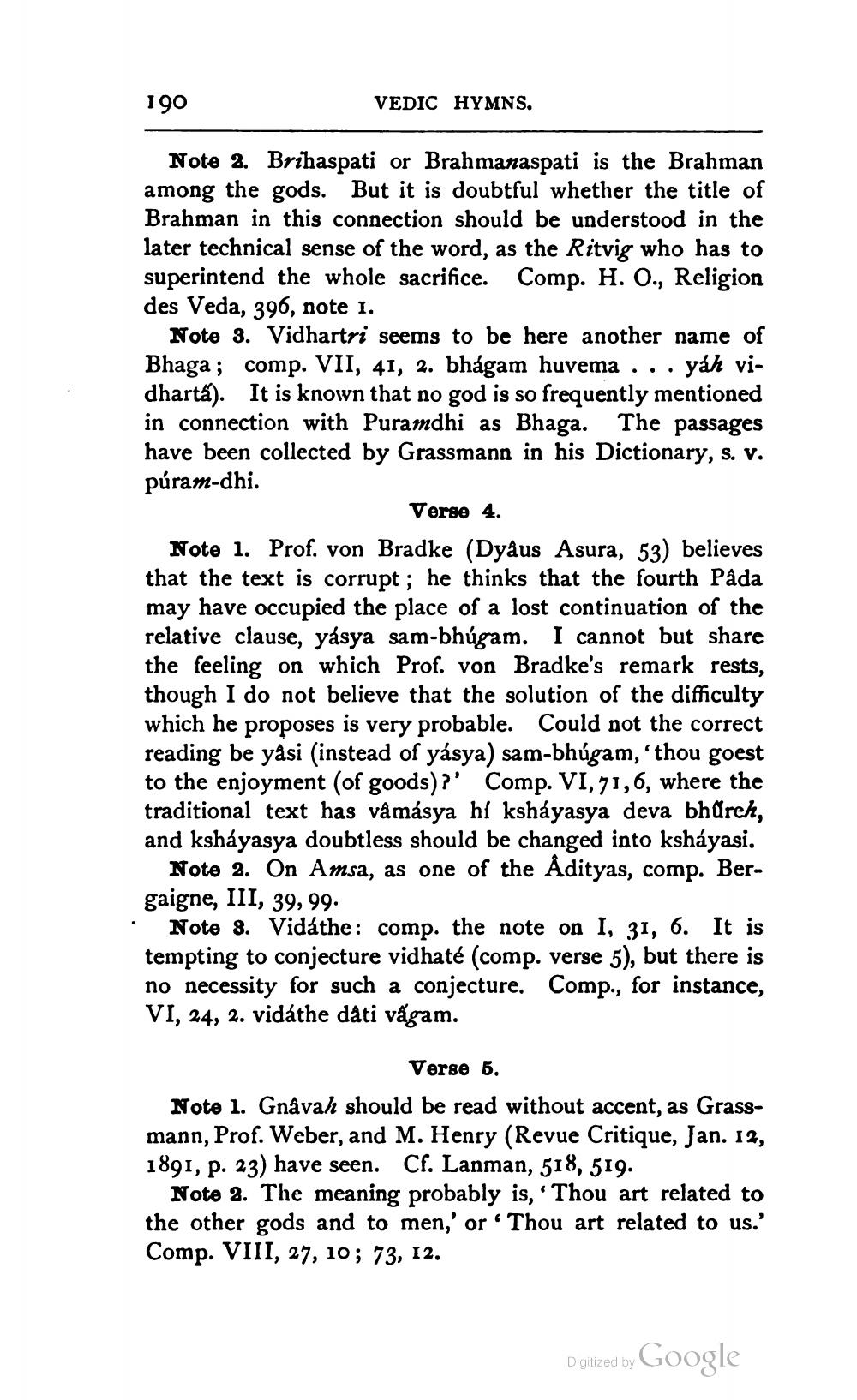________________
190
VEDIC HYMNS.
Note 2. Brihaspati or Brahmanaspati is the Brahman among the gods. But it is doubtful whether the title of Brahman in this connection should be understood in the later technical sense of the word, as the Ritvig who has to superintend the whole sacrifice. Comp. H. O., Religion des Veda, 396, note 1.
Note 3. Vidhartri seems to be here another name of Bhaga; comp. VII, 41, 2. bhagam huvema . . . yah vidharta). It is known that no god is so frequently mentioned in connection with Puramdhi as Bhaga. The passages have been collected by Grassmann in his Dictionary, s. v. púram-dhi.
Verse 4. Note 1. Prof. von Bradke (Dyâus Asura, 53) believes that the text is corrupt; he thinks that the fourth Pada may have occupied the place of a lost continuation of the relative clause, yasya sam-bhúgam. I cannot but share the feeling on which Prof. von Bradke's remark rests, though I do not believe that the solution of the difficulty which he proposes is very probable. Could not the correct reading be yasi (instead of yásya) sam-bhúgam,'thou goest to the enjoyment (of goods)?' Comp. VI, 71,6, where the traditional text has vậmasya hí kshảyasya deva bhareh, and ksháyasya doubtless should be changed into ksháyasi.
Note 2. On Amsa, as one of the Ådityas, comp. Bergaigne, III, 39, 99. • Note 8. Vidáthe: comp. the note on I, 31, 6. It is
tempting to conjecture vidhaté (comp. verse 5), but there is no necessity for such a conjecture. Comp., for instance, VI, 24, 2. vidáthe dati vagam.
Verse 5. Note 1. Gnavah should be read without accent, as Grassmann, Prof. Weber, and M. Henry (Revue Critique, Jan. 12, 1891, p. 23) have seen. Cf. Lanman, 518, 519.
Note 2. The meaning probably is, ' Thou art related to the other gods and to men,' or 'Thou art related to us.' Comp. VIII, 27, 10; 73, 12.
Digitized by Google




